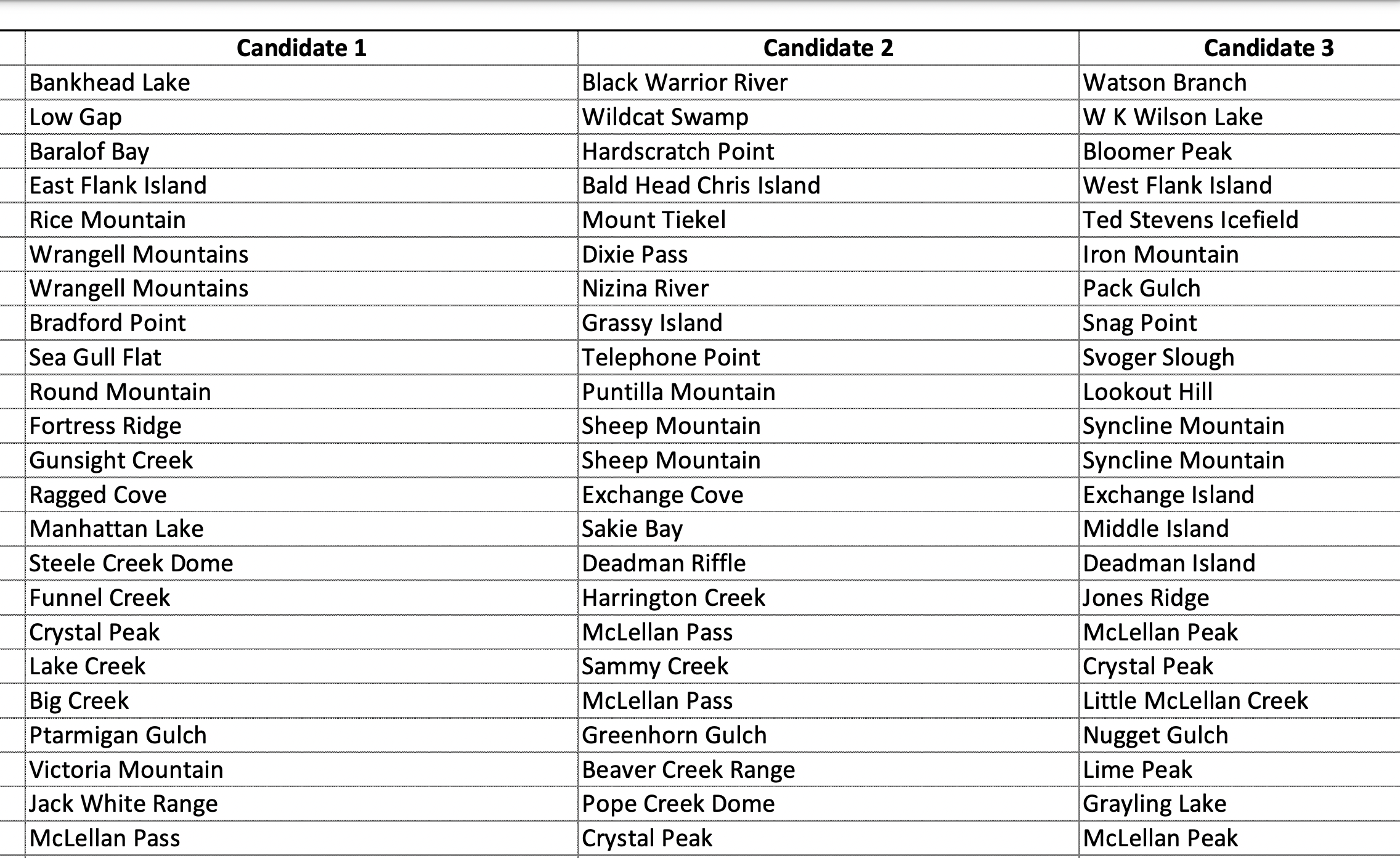
- Details
- By Jenna Kunze
The Department of the Interior is seeking public comment on proposed name changes for the more than 660 geographic places on federal lands that use a Native American slur, the Department announced on Tuesday.
Under the leadership of Interior Secretary Deb Haaland (Laguna Pueblo), the word “squaw” was officially declared a derogatory term last November. The Department of the Interior then enacted procedures to remove the term from federal usage.
A list of five candidate names for each geographic feature was developed by the U.S. Geological Survey, as directed by Haaland’s official order. Proposed additional candidate names will also be accepted during the public comment period, or for the next 30 days.
Want more Native News? Get the free daily newsletter today.
The Derogatory Geographic Names Task Force, formed by the Secretary, will ultimately recommend replacements to each of the more than 660 areas that require a name change.
The public can weigh in on each proposed name change. Five alternative replacement names were derived for each location using nearby geographic features. For example, the first name on the list in Alabama, “Squaw Shoals,” has a suggested replacement name of “Bankhead Lake.”
Proposed additional names will also be accepted during the public comment period.
To comment on the candidate names, visit the Federal Register notice for more information.
More Stories Like This
Native News Weekly (August 25, 2024): D.C. BriefsUS Presidents in Their Own Words Concerning American Indians
Senate Committee on Indian Affairs Passes 12 Bills to Strengthen Tribal Communities
Deb Haaland Tours CNM Workforce Facilities, Highlights Trade Job Opportunities
Federal Court Dismisses Challenge to NY Indigenous Mascot Ban
Help us defend tribal sovereignty.
At Native News Online, our mission is rooted in telling the stories that strengthen sovereignty and uplift Indigenous voices — not just at year’s end, but every single day.
Because of your generosity last year, we were able to keep our reporters on the ground in tribal communities, at national gatherings and in the halls of Congress — covering the issues that matter most to Indian Country: sovereignty, culture, education, health and economic opportunity.
That support sustained us through a tough year in 2025. Now, as we look to the year ahead, we need your help right now to ensure warrior journalism remains strong — reporting that defends tribal sovereignty, amplifies Native truth, and holds power accountable.
 The stakes couldn't be higher. Your support keeps Native voices heard, Native stories told and Native sovereignty defended.
The stakes couldn't be higher. Your support keeps Native voices heard, Native stories told and Native sovereignty defended.
Stand with Warrior Journalism today.
Levi Rickert (Potawatomi), Editor & Publisher

